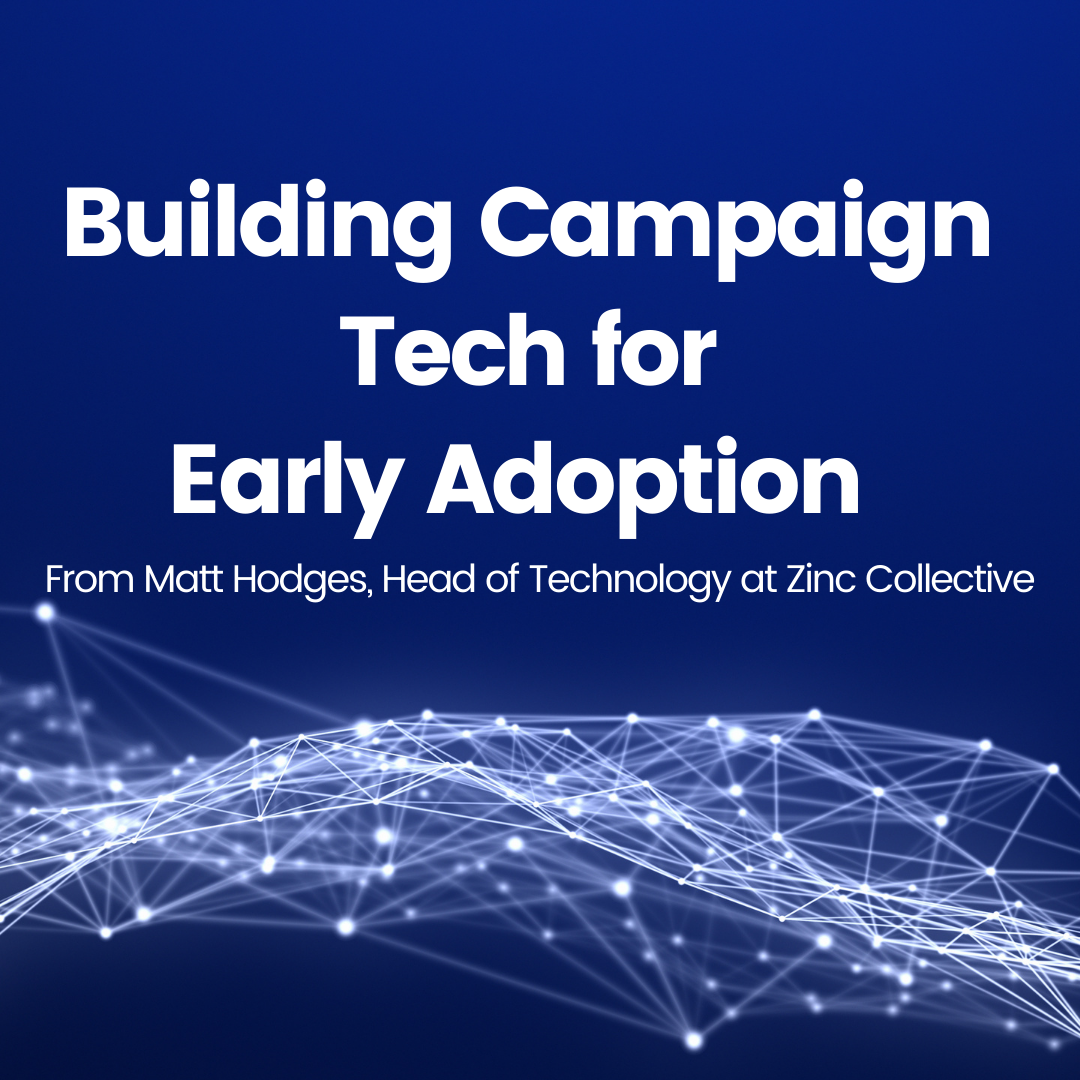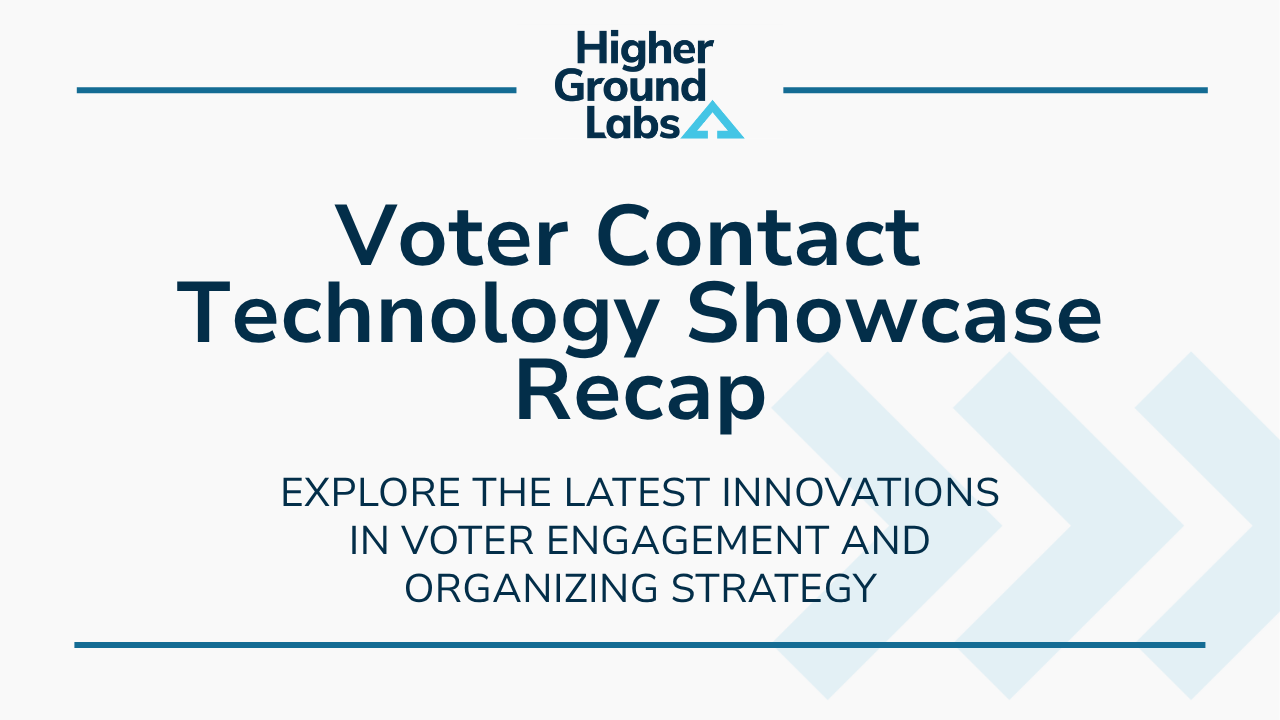This blog post was written by Matt Hodges.
Prior to joining Zinc Collective as the Head of Technology, Matt Hodges spent more than ten years blending Technology and Democratic politics. Matt was the Engineering Director for Joe Biden’s 2020 campaign and built software for Hillary Clinton’s 2016 campaign.
Building a political tech startup is uniquely challenging, in no small part due to the cyclical nature of the industry. The universe of customers comes and goes with the election cycle, and getting a product to market as early as possible is an obvious sustainability benefit. Unlike more traditional startups, we cannot think about growth as a hockey stick. Instead, we must think about it like running into a cliff. Especially for new tools, going from zero to 100 is the roadmap because campaigns spin up and need to do everything immediately. Because of this, tech creators need to consider what are the must-have Day 1 features for adoption. While this will vary from tool to tool, there are some minimums that the ecosystem has come to expect.
First and foremost, our tools must implement default security features.
How that’s defined will vary by tool and use case, but at a minimum, a campaign is going to expect Multi-Factor Authentication (we’ve spent years advocating this as the norm). Support for hardware tokens should be the goal, with app-based MFA as an okay alternative. The moment a campaign begins using a tool, that tool becomes part of the campaign. It is expected to adhere to, and uphold, the security mandates of our ecosystem.
Tech creators must also think about how their product fits into a campaign’s entire toolbelt.
That means thinking about how data moves in and out. If a campaign can’t reliably connect a product to the rest of their infrastructure, it may be a dealbreaker for adoption, full-stop. Founders need to think about what and how data should move across their tool. An API or import/export isn’t something that should be bolted on mid-cycle, and a campaign doesn’t have the luxury to hope that it may arrive some day. A campaign won’t change their workflow for a tool late in the game, so providing for this upfront is crucial for it to be used to its full potential.
And never underestimate the importance of documentation.
Both technical and user documentation should be available as soon as campaigns begin using it. We frequently hear from campaigns that there’s a documentation gap between commercial and political tools. Staff are working, and building, and launching at all hours of the day and night, and your customer support shouldn’t be their bottleneck. If a tool is too hard to use, or more often, if it’s poorly documented, campaigns may have no choice but to deprioritize the role that it plays, even if it’s the right tool for the job. Robust documentation enables everyone to move faster, and allows organizations to use the tool in more creative ways.
By building tech that offers a robust set of Day 1 traits, it unlocks campaigns to hit the ground running. It also opens the door for technologists to do what they do best: iterate. If a campaign isn’t blocked on using a given tool, that means they can rapidly provide user feedback. Campaigns consistently rate more established technology higher on usability and importance, largely because it’s undergone multiple feedback iterations. Again, this ecosystem never has the luxury of time, and getting real-world user research is extremely valuable. Don’t wait for multiple cycles to know what needs to be built.
When campaigns and vendors work together early, it strengthens everyone in the short and long term. Campaigns can focus on winning elections, while tech builders can focus on building gold-medal, sustainable, infrastructure. The races that make or break majorities are increasingly decided by razor-thin margins. Every day spent without a tool, or spent learning a tool late, is time not spent on all the other campaign things. The tech is never the point, but smarter and more efficient campaigns are more equipped for victory. Having robust tools early maintains that agile advantage.



